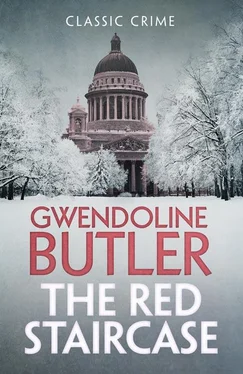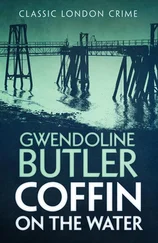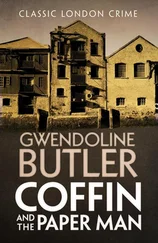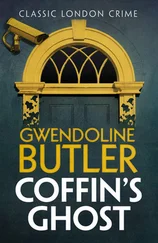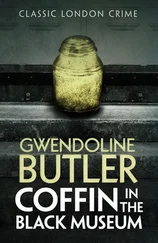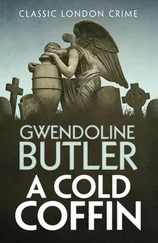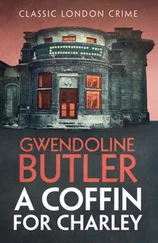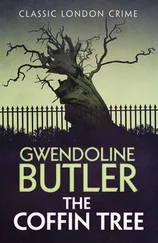‘Let’s go into the house, Rose,’ Patrick now said.
‘Oh, no.’ My reply was spontaneous and instinctive. ‘I’d rather stay outside.’ No good news could come to me inside the house, I knew that, and so I wanted to stay in the garden where there was sunshine and warmth and the memory of happiness.
‘Could I have a glass of water then, Rose? I’m parched.’
Reluctantly I conceded. ‘Come into the parlour.’ And I led the way into its cool darkness. ‘Wait there and I’ll get you a drink.’
I went into the kitchen and drew him a glass of water which was fresh and sweet from our own spring at Jordansjoy. Tibby, who was standing at the table preparing a fruit pie – plum, it smelt like – raised her head and gave me a look.
‘A drink for Patrick,’ I explained.
‘Ah, so he’s come then?’
‘Just the while,’ I said in as non-committal a voice as I could manage.
‘Is water all he wants? We’ve a keg of beer in the pantry.’
‘Water he asked for and water it shall be,’ I announced, carrying the glass out in my hand.
‘Would you have liked beer, Patrick?’ I asked.
‘No, water,’ he said, taking the glass and draining it thirstily. ‘I hate country beer.’
‘We get ours from Edinburgh. McCluskie’s Best Brew.’
‘It’s not good, all the same. You never drink it yourself so you don’t know. I’ve never told you so before.’
‘You’re telling me now.’ I took the glass from him. ‘Of course, we’re not really talking about beer,’ I said coldly.
‘Are we not?’
‘No. Come, Patrick. Perhaps I am a year or two younger than you, but let us meet in this as equals. There’s something on your mind. What’s it all about? You must tell me.’
‘Man to man, eh, Rose?’ He smiled. Patrick never had orthodox good looks, but he smiled with his eyes as well as his mouth and I never knew a soul who could resist that smile, it had such luminous comprehension in it.
For a moment the joke gave me hope. Because he could tease me in this way, surely things could not be wholly bad? ‘Why not?’ I returned boldly.
‘But we aren’t man to man, but man to woman, and that’s the whole of it.’ Looking back, I see that Patrick, who was a brave man, never said a braver thing in his life, but then I hated him for it.
Our parlour at Jordansjoy has one long window which we keep filled with sweet geraniums. Patrick stood with his back to it, so that he was in silhouette and I could hardly see his face. He could see mine, though, and I suppose it looked foolishly young and innocent.
‘Come out into the garden,’ I said. ‘I can breathe there.’
But he interrupted me, saying – his voice a tone higher than usual, and abrupt: ‘Look here, Rose, the wedding will have to be put off. Postponed. I’ve to go to India. I’m transferring.’
I stared; perhaps I said something, I don’t remember; it can have been nothing coherent.
‘It can’t go ahead. You can put about what explanation you like. Blame it all on me. It is my fault. God knows it is.’
‘I don’t understand,’ I stammered.
‘I’m transferring to the part of the regiment that’s going off to India. It’s no place for a woman. It’s a bachelor’s job.’
‘I wouldn’t mind India. I’d like it. I would, I promise.’
‘No, it’s no good, it wouldn’t do, not for me nor for you. It would be a wretched business, Rosie. We should be so poor. God knows, it’s bad enough being poor when you’re married anyway, but in India it would be infinitely worse. I couldn’t bear it for you, Rose.’
‘But we love each other.’
‘Ah, Rose, do we? Really, truly, do we?’
‘I love you.’
‘Do you, Rose?’ He was serious and sad. Hesitantly, he said: ‘I wonder sometimes if you know what love is. Oh yes, in a way, Rose; but a deeper, married love?’
‘We love each other. Together, we shall …’ But he broke in. ‘That’s true in a way, Rose, but is it enough?’ He took my hand. ‘That joke you made about Mrs Dobson and her housekeeping – well, it was true although I didn’t admit it, she is a rotten housekeeper and her house was always untidy and her children run wild. But sometimes I saw a look pass between her and her husband, well, a look that I envied. A look such as you and I could never exchange.’
‘But they have been married for years.’
‘Is that all, Rose? Does it come only with years? No, it was not that sort of look. And if it is not there before marriage, I think it does not come afterwards.’
I was utterly at a loss. There were so many things I wanted to say, but I couldn’t find words for them. So I stood there, just looking at him.
‘I blame myself, not you.’ He sounded weary. ‘I’m older than you, more experienced. I have to protect you. Our marriage would be a mistake.’ He handed me the parcel. ‘Here are your letters, and the book you gave me.’
I threw them on the floor in a fury, and for the first time in the interview felt bitter.
‘Please, Rose,’ he said. ‘I have thought about it very carefully. It is in your interest and mine.’
I sat down; my fury ebbing away had left my legs curiously weak. I suppose he thought I was coming round, because he took a deep breath of relief. As soon as I saw this I felt even more savage. ‘And now I suppose you will go away and explain to yourself that it is my fault. Oh, though I don’t know how it can be. I suppose I’ve failed you somehow, Patrick. Or you choose to think so.’
He quailed before the fury and contempt in my eyes, but he stood his ground – I give him that. When he had made up his mind to do a thing, Patrick did it. ‘No, no, the fault is all mine. I’m not good enough for you.’ He looked at me. ‘Forgive me, Rosie?’
He had given me an antique rose-diamond ring, and I suppose he took it with him, for I never saw it again. I remember nothing of the circumstances of its handing over. Nor of him going; but go he did.
Tibby says she came in and saw me standing staring out of the window, and that I turned to her with tearless eyes and said: ‘He’s gone, Tibby. Gone for good.’ Then I went upstairs and went to my bed. I stayed there, watching the light change on the ceiling as the day reached its peak and then faded into night.
After a while, Grizel and Tibby came to look at me. ‘I’m sick,’ I said, in answer to their anxious questions. And it was, in a way, true; I did feel deadly tired, as if life had seeped out of me. I didn’t look at them, turning my head to stare bleakly at the wall. I could hear Tibby trying to make encouraging, cheerful noises, then I heard her saying something about the doctor, but it was Grizel, my sibling and nearest me in age, who got it right.
‘Leave her alone,’ she said. ‘Let her lie there.’ She drew Tibby out, protesting. ‘No,’ said Grizel firmly. ‘Let her be.’ She pulled my door to and closed it with a decided little bang. It was her message to me, a message of support, and interpreting it correctly I felt a comforting warmth creep into my heart.
I stayed there all night, letting darkness melt in through the window and over the walls, and then recede again into silver light. At no time did I sleep.
Grizel came quietly in when the morning was still early and placed a cup of tea on my bed-table. She did not speak, but adjusted the curtains so that the sun should not shine on my face, and went away. I wondered how much she knew of what had passed between me and Patrick. Almost everything, I supposed, by means of that curious feminine osmosis that sometimes existed between us. I drank the tea, which was very hot and over-sweet, so that I knew Tibby had stirred in the sugar lumps – it had always been her idea that a person in trouble needed something sweet. She might have been right, because the dead weight of fatigue which rested on me began to lift a little.
Читать дальше
